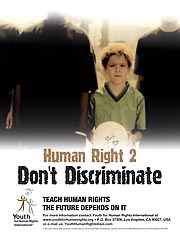|
Human Trafficking - The Challenge for Effective Prevention
August 3, 2005
The Cameroon Tribune reported yesterday that UNICEF sources say human trafficking is intensive in Nigeria, Gabon, Mali, Burkina Faso, and Cameroon. The case of Ivory Coast is peculiar. Children are transported by intermediaries, sometimes family members, and sold to plantation owners for cheap labour in cocoa and cotton farms in the countryside.
According to the 2004 U.S. Department of State Trafficking in Persons Report, each year, an estimated 600,000 to 800,000 men, women, and children are trafficked across international borders of whom 70 percent are female and 50 percent are children (some international and non-governmental organizations place the number far higher), and the trade is growing.
In March of this year, UNICEF published its findings on human trafficking in Albania, Bosnia and Herzegovina, Bulgaria, Croatia, the former Yugoslav Republic of Macedonia, Moldova, Romania and Serbia and Montenegro, in which they stated:
"Preventive strategies in the fight against human trafficking are few and far between." Emphasizing this, Helga Konrad, OSCE Special Representative on Combating Trafficking in Human Beings stated, "The report shows that there is no comprehensive long-term prevention strategy. Yet prevention is the key to success in curbing this crime."
Yet they also found that "Effective re-integration programmes are rare. Despite help from international and local organisations, most trafficking victims return home to face the same problems that led to the trafficking in the first place: poverty, discrimination, lack of education, few job prospects and, sometimes, political conflict and unrest."
Where NGOs are saving lives every day with their generous provision of food and medical care to the people of these countries, it is clear that we need to provide effective education programs, including education in human rights, and programs to help bring the economies of these countries up to a level where families can survive on what they can earn, if we are going to end this social epidemic.
|



